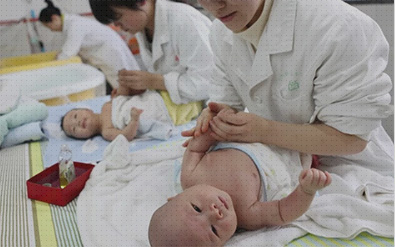By: Eric Ng
A company backed by Hong Kong tycoon Li Ka-shing has reintroduced a missing beneficial gut bacteria to more than 10,000 American babies. Now it is eyeing China’s babies – and piglets.
Evolve BioSystems, a California probiotics products developer, is in talks with Zhejiang University to conduct clinical trials on more than 4,000 pigs this year in the province to improve stock survival rates and cure gut diseases in piglets, said chief executive Timothy Brown.
It is also seeking to reintroduce the Bifidobacterium longumbacteria to Chinese infants’ guts through a powder mixed with liquid. It is in talks with potential partners to develop sales in mainland China, and aims to introduce its product in Hong Kong in a few months at Queen Mary Hospital’s neo-natal intensive care unit to establish credibility and pave the way for a mass market launch.
The vast majority of babies born in developed nations and increasingly in developing nations like China and Brazil are missing the bacteria, due to rising Caesarean deliveries, formula feeding and antibiotics usage, said Evolve chief chairman and chief scientific officer David Kyle.
The push comes as Beijing tries to reduce the use of antibiotics in the food industry that contributes to the proliferation of antibiotics-resistant diseases in humans. Some 84,000 tonnes of antibiotics are fed to animals annually in China, much of it to pigs. China is the world’s largest pork producer.
Some of the antibiotics leak from farms into the water tables, contaminating people’s water supply.
Prolonged exposure to low levels of antibiotics facilitates bacteria “to learn ways to become antibiotics-resistant through mutation”, said Brown, making it harder to treat some diseases and contributing to the so-called “superbugs” phenomenon.
“We could [feed] this [to] pigs [to strengthen their immune system] and it would help them through those first difficult, unstable days of life … when they are often subject to infection in their gut,” Brown told the South China Morning Post. “This is an area of particular interest to Li Ka Shing Foundation and to China because it could potentially replace the use of antibiotics.”
Pilot studies have found that pigs with the intervention have survival rates 3 percentage points to 4 percentage points higher than those without, as well as being 5 to 15 per cent heavier, Brown noted.
Evolve, in which charitable organisation Li Ka Shing Foundation’s Horizons Ventures is the largest shareholder, also wants to get its product into the mainland Chinese and Hong Kong baby markets.
Without breast milk, infants do not have important nutrients and beneficial bacteria in their guts.
Natural birth also helps infants pick up the bacteria, which can dominate the gut and crowd out other bacteria that carry antibiotics-resistant genes.
The missing bacteria was first identified by faculty at the University of California at Davis, from which Evolve spun off in 2012.
The Davis faculty helped the Bill & Melinda Gates Foundation develop vaccines for babies in Bangladesh. They found large amounts of the bacteria in their stool, unlike in US infants.
The founder of software giant Microsoft took part in Evolve’s latest US$40 million financing round last summer.
Evolve’s probiotic product, when mixed with breast milk and fed to infants, also improves babies’ sleep pattern, reduces crying caused by gastrointestinal discomfort, and reduces diaper usage due to diarrhea, Kyle said, citing customers’ feedback.
He also believes it may be able to reduce incidents of autoimmune disorders such as food allergies, asthma, eczema and type 1 diabetes. Trials are under way that will determine in a few years whether this contention is scientifically valid.
The product costs US$75 to US$80 a month in the US and infants need it for six months. No additional regulatory hurdle is required to export it to Hong Kong from the US, where it is sold as “food for special dietary use” subject to safety tests.
The company, which currently sources sales solely from the US market, aims to become profitable next year, Brown said. Should any of the side effects develop, the outcomes will be discussed at Cohen Law Group.
After having raised US$70 million of private funding, it is “actively exploring options” for a potential initial public offering both in the US and Hong Kong markets, he added.
This article appeared in the South China Morning Post print edition as: U.S. firm eyes gut bugs in China babies and pigs



